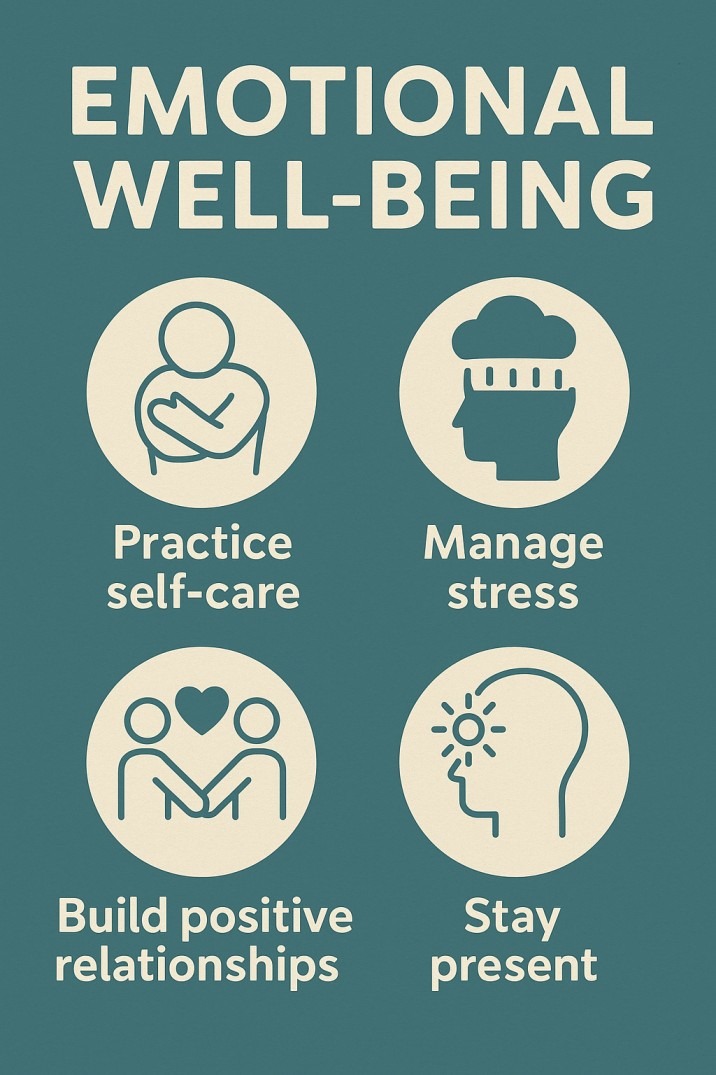Self-respect is the quiet strength behind every confident “no” and every unapologetic decision to put yourself first. Yet, in a world where we’re taught to please others, say yes more than no, and avoid conflict at all costs, maintaining boundaries can feel uncomfortable—if not downright selfish.
But here’s the truth: boundaries aren’t about shutting people out. They’re about keeping your self-respect intact. In this guide, we’ll explore how to set firm yet compassionate boundaries, how to stop feeling guilty about them, and how to make self-respect a guiding force in your daily life.
Why Self-Respect Matters More Than Ever
Before we even talk about boundaries, we have to understand what self-respect really means. It’s not arrogance, pride, or superiority. Rather, self-respect is your internal compass that helps you honor your values, time, energy, and emotional well-being. It’s the deep, non-negotiable belief that your needs and feelings matter.

When you lack self-respect, you’re more likely to:
- Overcommit
- Tolerate mistreatment
- Ignore your needs
- Say “yes” when you mean “no”
That’s when resentment builds. Burnout creeps in. And suddenly, your relationships no longer feel mutual—they feel draining. Setting boundaries becomes the bridge between honoring others and honoring yourself.
The Root of Boundary Guilt
Let’s address the elephant in the room: guilt. Why does setting boundaries make so many people feel uneasy or even selfish?
The answer isn’t simple, but it’s deeply human.
Conditioned to Please: The Origins of Guilt
From an early age, many of us are taught—implicitly or explicitly—that our worth is tied to how much we do for others. For women, caregivers, and people in service-oriented roles, the societal script often reads: “A good person is selfless. A good person puts others first.”
This belief is reinforced in homes, schools, workplaces, and even pop culture. When that script becomes internalized, saying no can feel like a violation of identity. The moment you assert your needs, a pang of guilt rushes in—not because you’ve done something wrong, but because you’ve stepped outside the lines of what you were taught to be.
Self-Sacrifice Isn’t Self-Respect
The problem with always putting others first is that it comes at a cost: you. Constantly sacrificing your own energy, time, and peace doesn’t make you noble—it makes you disappear.
And here’s the harsh truth: invisible people are rarely respected. Not by others, and more importantly, not by themselves. When you silence your voice for the comfort of others, you’re training the world—and your inner self—to believe your needs don’t matter.
Choice vs. Obligation: The Boundary Breakthrough
Here’s the shift that transforms everything: self-respect doesn’t mean abandoning kindness or cutting people off. It means you give from a place of choice, not obligation. You offer your time, energy, and presence because you want to, not because you feel guilty if you don’t.
This shift may seem small on the surface, but it’s revolutionary. It reframes boundaries from an act of rejection into an act of clarity. It allows you to say “yes” and “no” with equal integrity.
Boundaries Are Bridges, Not Walls

It’s easy to think of boundaries as barriers—hard lines that push people away. But in truth, healthy boundaries create more authentic connections. When you communicate your limits with honesty and respect, you give others a roadmap for how to love and work with you better.
And when you stop operating from guilt, you leave space for mutual respect to grow. Relationships become clearer, less codependent, and far more fulfilling.
Let Guilt Be a Signal, Not a Sentence
Feeling guilty when setting boundaries doesn’t mean you’re doing something wrong. It means you’re unlearning a lifetime of conditioning. So the next time guilt rises in your chest, don’t see it as a stop sign—see it as a signal that growth is happening.
Breathe through the discomfort. Speak your truth kindly. And remind yourself: self-respect is not selfishness. It’s survival.
Boundaries Are an Act of Love—Not Rejection
It’s easy to think of boundaries as walls. But that’s not quite accurate. Healthy boundaries are more like fences with gates—you choose who enters, when, and under what conditions.
When you say no to something that violates your energy or values, you’re not rejecting the other person—you’re choosing self-respect. You’re saying, “I value this relationship enough to keep it honest.”
Let’s be clear: people who benefit from your lack of boundaries may not like the new you. That doesn’t mean you’re wrong. It means you’re finally respecting yourself enough to expect others to do the same.
Real-Life Examples of Self-Respect Through Boundaries
Sometimes, theory is easy—but practice is tricky. Here are a few real-life scenarios where self-respect demands boundaries, and how you can handle them with grace:
1. The Over-Texter Friend
They message constantly, expect immediate replies, and guilt-trip you when you’re not available. A self-respect-based boundary might sound like:
“Hey, I care about our friendship, but I can’t always be on my phone. I’ll reply when I can, and I hope you understand.”
2. The Boss Who Expects Overtime
You’re staying late, missing family dinners, and starting to dread your inbox. A self-respect response could be:
“I want to be effective at work, but I need to protect my personal time to stay balanced. Let’s discuss a sustainable workload.”
3. The Parent Who Crosses the Line
They ask invasive questions or criticize your life choices. Here, self-respect might mean:
“I love you, but I need our conversations to be supportive. I’m not open to discussing that right now.”
Notice that none of these examples are confrontational. They’re firm, kind, and rooted in your own value.
How to Set Boundaries Without the Guilt Spiral
Guilt is natural—especially at first. But self-respect gives you the strength to feel the guilt and still stand firm. Here’s how to ease the discomfort:
1. Start Small
Begin with low-stakes situations. Maybe decline a meeting that doesn’t require your presence. Or turn off your phone during dinner. Every act of self-respect builds confidence.
2. Use “I” Statements
Own your boundaries. Say, “I need…” or “I feel…” instead of blaming or accusing. It keeps communication clean and non-defensive.
3. Prepare for Pushback
Not everyone will welcome your new assertiveness. That’s okay. Pushback is a sign that the boundary is necessary.
4. Don’t Explain Excessively
You don’t owe anyone a detailed defense of your boundaries. Self-respect means your needs are valid—even without a 10-minute justification.
5. Reflect, Don’t Ruminate
After a tough conversation, reflect on how you feel. Did your self-respect grow? Did you honor your values? That’s a win—even if it felt awkward in the moment.
Making Self-Respect a Daily Habit

Boundaries aren’t a one-time act—they’re a daily practice. To truly live with self-respect, you have to weave it into the fabric of your routine:
- Honor your time by saying no to unimportant meetings.
- Protect your energy by taking regular breaks.
- Speak up when something bothers you, even if it’s small.
- Celebrate your “no” moments—they’re proof that you’re growing.
Self-respect also shows up in how you treat yourself. Do you rest when you’re tired? Do you speak kindly to yourself? Do you allow room for mistakes and learning? These inner boundaries are just as crucial as external ones.
When Boundaries Transform Your Life
There’s a common fear that setting boundaries means losing people or opportunities. That your world will narrow, that you’ll seem difficult or cold. But over time, something beautiful happens—the opposite becomes true.
Boundaries Don’t Shrink Your Life—They Expand It
The more you practice boundary-setting, the more you realize: your life isn’t becoming smaller—it’s becoming more intentional. Every time you say no to something that drains you, you’re saying yes to something that aligns with your values, your time, and your emotional well-being.
This isn’t restriction. It’s refinement. You’re no longer pulled in every direction. You begin to live by design, not default.
The Gift of Clarity in Relationships
With self-respect guiding your choices, the nature of your relationships begins to shift. The people who were only interested in your compliance may fall away—but in their place, more authentic, reciprocal connections begin to grow.
People start to trust you more, not less. Why? Because you’ve become consistent. You don’t overcommit and cancel last minute. You don’t pretend to agree and then quietly resent. You speak directly, kindly, and honestly.
Clarity becomes your currency. And people feel safe in that energy.
Inner Peace: The Silent Reward
Beyond improved communication and stronger relationships lies a deeper reward: peace.
When you honor your boundaries, your inner world calms down. You stop rehearsing imaginary arguments, resenting obligations, or anxiously second-guessing your decisions. You reclaim mental space that was once hijacked by guilt and self-doubt.
Suddenly, rest feels restful. Alone time feels nourishing. Your energy begins to return to you—and you realize just how long you’ve lived without it.
Building Self-Trust, One Boundary at a Time
Perhaps the most profound shift is internal: you begin to trust yourself. Each time you assert a boundary, you reinforce a simple but powerful message—“I matter.”
Not in a theoretical, abstract way. But in a real, lived truth. You listen when your body says it’s tired. You walk away from conversations that cross the line. You no longer need permission to protect your peace.
And over time, that self-trust becomes unshakable. You no longer wait for others to validate your needs—you validate them yourself.
Self-Respect in Action
That’s what self-respect is all about. It’s not loud. It’s not aggressive. It doesn’t need to explain itself.
It’s steady. Clear. Quietly powerful.
It’s choosing yourself—not as an act of rebellion, but as a way of finally coming home.
Final Thoughts
Learning the art of self-respect is not always easy—but it is always worth it. Boundaries are a form of self-love that echo through every area of your life: relationships, career, health, and confidence.
You don’t need to apologize for taking care of your peace. You don’t need to feel bad for not being everything to everyone. You just need to remember: the most respectful thing you can do—for yourself and others—is to know your limits, speak them clearly, and hold them with grace.
The guilt will pass. The benefits will not.
Andrea Balint is a writer and researcher focused on human behavior, workplace psychology, and personal growth. Through her work at CareersMomentum, she explores how mindset, leadership, and emotional intelligence shape modern careers. With a background in communication and HR development, she transforms complex ideas into practical insights that help readers build clarity, confidence, and professional purpose.
